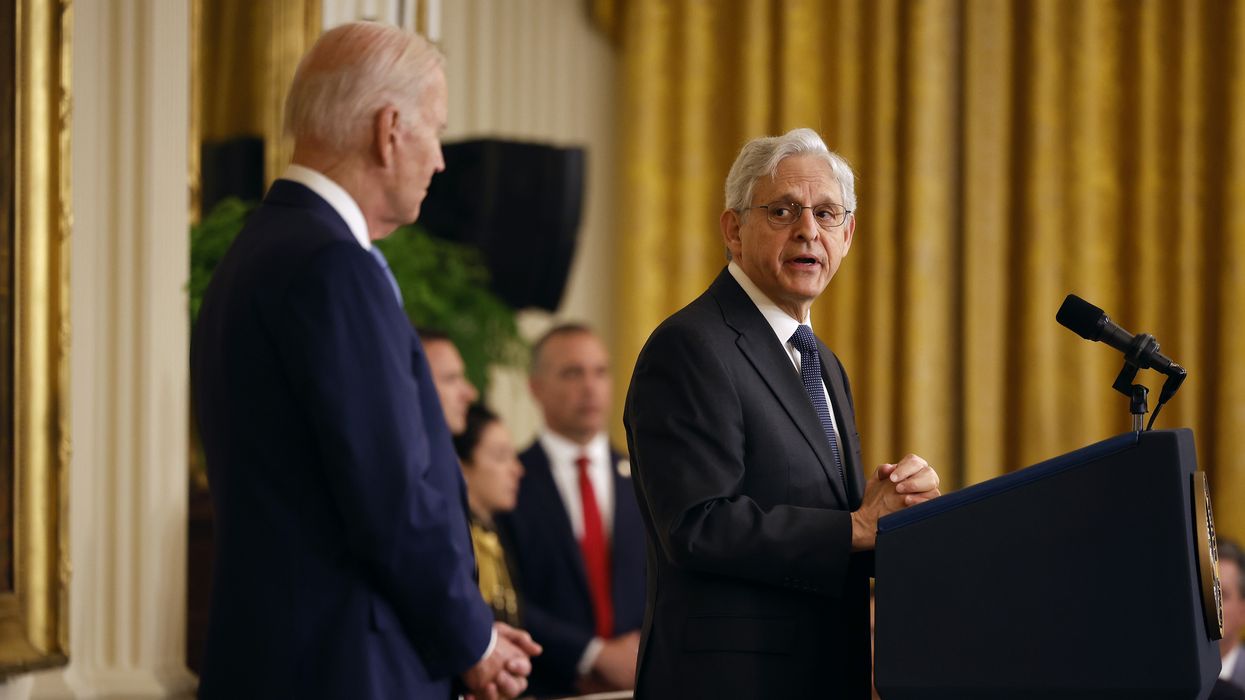Huge Administrative Waste Makes Clear For-Profit Insurance Is 'Actually Very Bad': Analysis
"It is totally fair for people to identify private insurers as the key bad actor in our current system," writes Matt Bruenig of the People's Policy Project. "The quicker we nationalize health insurance, the better."
Last week's murder of UnitedHealthcare CEO Brian Thompson brought to the surface a seething hatred of the nation's for-profit insurance system—anger rooted in the industry's profiteering, high costs, and mass care denials.
But that response has led some pundits to defend private insurance companies and claim that, in fact, healthcare providers such as hospitals and doctors are the real drivers of outlandish U.S. healthcare costs.
In an analysis published Tuesday, Matt Bruenig of the People's Policy Project argued that defenders of private insurers are relying on "factual misunderstandings and very questionable analysis" and that it is reasonable to conclude that the for-profit insurance system is "actually very bad."
"From a design perspective, the main problem with our private health insurance system is that it is extremely wasteful," Bruenig wrote, estimating based on existing research that excess administrative expenses amount to $528 billion per year—or 1.8% of U.S. gross domestic product.
"All healthcare systems require administration, which costs money, but a private multi-payer system requires massively more than other approaches, especially the single-payer system favored by the American left," Bruenig observed, emphasizing that excess administrative expenses of both the insurance companies and healthcare providers stem from "the multi-payer private health insurance system that we have."
He continued:
To get your head around why this is, think for a second about what happens to every $100 you give to a private insurance company. According to the most exhaustive study on this question in the U.S.—the CBO single-payer study from 2020—the first thing that happens is that $16 of those dollars are taken by the insurance company. From there, the insurer gives the remaining $84 to a hospital to reimburse them for services. That hospital then takesanother $15.96 (19% of its revenue) for administration, meaning that only $68.04 of the original $100 actually goes to providing care.
In a single-payer system, the path of that $100 looks a lot different. Rather than take $16 for insurance administration, the public insurer would only take $1.60. And rather than take $15.96 of the remaining money for hospital administration, the hospital would only take $11.80 (12% of its revenue), meaning that $86.60 of the original $100 actually goes to providing care.
High provider payments, which some analysts have suggested are the key culprit in exorbitant healthcare costs, are also attributable to the nation's for-profit insurance system, Bruenig argued.
"Medicaid and Medicare are able to negotiate much lower rates than private insurance, just as the public health insurer under a single-payer system would be able to. It is only within the private insurance segment of the system that providers have been able to jack up rates to such an extreme extent," he wrote. "Given all of this, I think it is totally fair for people to identify private insurers as the key bad actor in our current system. They are directly responsible for over half a trillion dollars of administrative waste and (at the very least) indirectly responsible for the provider rents that are bleeding Americans dry."
"The quicker we nationalize health insurance," he concluded, "the better."
Bruenig's analysis comports with research showing that a single-payer system such as the Medicare for All program proposed by Sen. Bernie Sanders (I-Vt.), Rep. Pramila Jayapal (D-Wash.), and other progressives in Congress could produce massive savings by eliminating bureaucratic costs associated with the private insurance system.
One study published in the Annals of Internal Medicine in January 2020 estimated that Medicare for All could save the U.S. more than $600 billion per year in healthcare-related administrative costs.
"The average American is paying more than $2,000 a year for useless bureaucracy," said Dr. David Himmelstein, lead author of the study, said at the time. "That money could be spent for care if we had a Medicare for All program."
Deep-seated anger at the systemic and harmful flaws of the for-profit U.S. insurance system could help explain why the percentage of the public that believes it's the federal government's responsibility to ensure all Americans have healthcare coverage is at its highest level in more than a decade, according to Gallup polling released Monday.
"There's a day of reckoning that is happening right now," former insurance industry executive Wendell Potter, president of the Center for Health and Democracy, said in an MSNBCappearance on Monday. "Whether we're talking about employers, patients, doctors—just about everybody despises health insurance companies in ways that I've never seen before."


